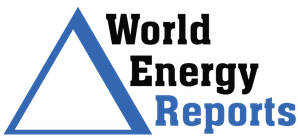10-year Contracts: Germany to Charter Two FSRUs from Höegh LNG
Oslo-listed Höegh LNG has signed binding agreements with the German government for the charter of two Floating Storage and Regasification Units (FSRUs) from its fleet for operations in Germany for 10 years, as Germany works to become less reliant on Russian gas.
The detailed FSRU contracts with the German Federal Ministry for Economic Affairs and Climate Action, are scheduled to be completed by September/October, and FSRU operations are expected to start at the end of this year.
President and CEO of Höegh LNG, Thor Jørgen Guttormsen, said: "We are very pleased and honored to be selected by the German government to support Germany's security of energy supply with two of our modern, large-capacity FSRUs."
Höegh LNG did not share details on the value of the contracts. The company said the FSRUs from its existing fleet would be deployed in Germany.
RWE to operate the FSRUs
In a separate statement, German energy company RWE confirmed it had signed agreements for the charters of the two Hoegh LNG FSRU, adding that these ships offer a rapid interim solution for landing liquefied natural gas (LNG) until the first LNG terminals on the German mainland are completed. RWE will also manage the operation of the vessels.
"Each of the ships is capable of receiving up to 170,000 cubic metres of LNG via tankers in one unloading, converting it to the gaseous state on board and then feeding it into the gas grid. With the two 300-meter-long FSRUs, between 10 and 14 billion cubic meters of natural gas can be made available to the German gas market annually. By comparison, the throughput of a land-based LNG terminal is between 8 and 10 billion cubic metres per year," RWE said.
"The plan is for the FSRU platforms to start operating as early as next winter. For the time being, the operational responsibility for the floating facilities lies with RWE, which will make all commercial decisions concerning the use of the ships and optimise these assets in the interest of the German government. RWE will have the technical operation handled by Höegh LNG," RWE said.
The agreement comes a week Die Welt reported that a floating liquefied natural (LNG) gas terminal will enter operation at the start of 2023 in the German state of Schleswig-Holstein.
According to World Energy Reports, there has been a growing interest in FSRUs recently, especially in Europe.
WER's latest report shows the interest in new floating regasification terminals in Europe has been driven mostly due to fear of gas supply interruptions from Russia. To remind, German Chancellor Olaf Scholz stopped the Nord Stream 2 gas pipeline project, designed to bring more Russian gas to Germany via the Baltic Sea, on February 22, after Russia formally recognized two breakaway regions in eastern Ukraine.
Commenting on the FSRU deal with Höegh LNG, Andree Stracke, Chairman of the Executive Board of RWE Supply & Trading said:"On behalf of and in the name of the German government, RWE has chartered two special ships with which liquefied gas can be imported and fed directly into the German gas grid. In this way, the company is supporting the German government in strengthening the security of supply in Germany in the short term and in moving away from a one-sided energy dependency as quickly as possible. As early as next year, it will thus be possible to replace part of the Russian gas."
World Energy Reports' April report shows that 13 FSRU terminals are now in the advanced planning stage in Europe.
Earlier this week, the kick-off ceremony was held for the realization of Gastrade SA's LNG FSRU facility in Alexandroupolis, Greece. The 5.5 billion c.m. per year Alexandroupolis FSRU, which will supply gas to Southeastern Europe, is expected to become operational by the end of 2023.


